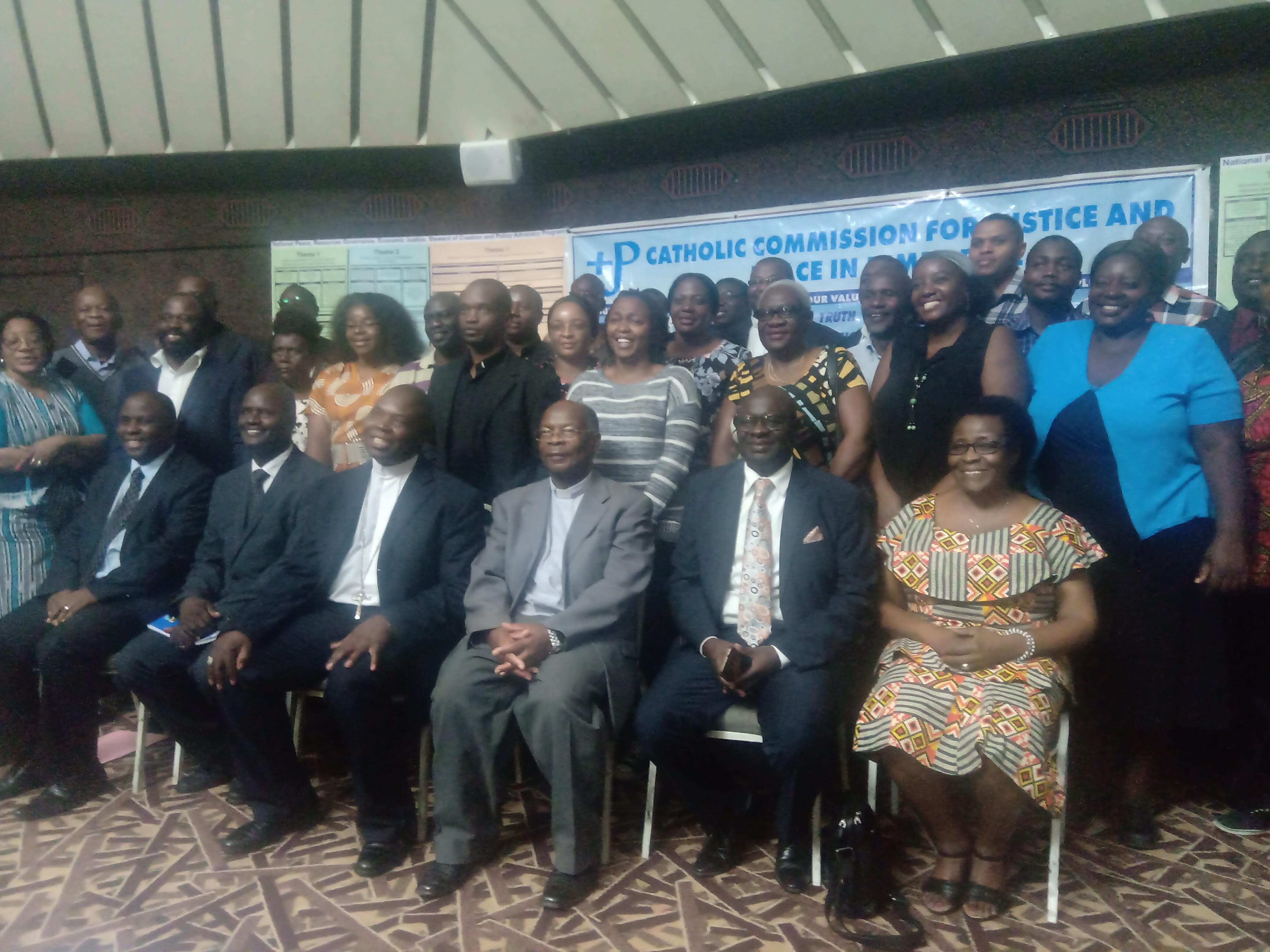Expert groups were commissioned to facilitate the mission of the Catholic Church in promoting justice and peace in Zimbabwe.
The Rt. Rev. Rudolph Nyandoro, the Bishop Chairman of the Catholic Commission of Justice and Peace in Zimbabwe (CCJPZ) said the working groups will focus on three thematic areas.
“We shall have the advocacy and liaison for a victim centred national peace and reconciliation process. There will also be a group focusing on primary justice, inclusive participation and social cohesion. As the church, we shall also have a group on resource governance, economic justice and stewardship of creation,” Bishop Nyandoro said.
He cited Pope St John XXIII in Mater et Magistra who tasked all faithful to promote human dignity as a collective responsibility and said, “The Church today is faced with an immense task: to harmonise and to Christianise this modern society of ours.”
“Therefore the experts gathered here today are being called to do this work for the Lord and His people. I have been informed that members of each of the CCJP expert or working groups bring a wealth of experience in policy, peace building, governance, and all the relevant thematic skills,” he added.
Selected experts have worked or are currently working at the highest level of civil society, non-governmental and governmental organisations. Some are occupying or have occupied senior positions in some of the leading national and international institutions.
The CCJPZ working group on primary justice, inclusive participation and cohesion members comprise Dr Innocent Madenga as the Chairperson, Br Blazio Manobo, Dr James Nyawo, Dominic Musengi, Dr Clever Mudziwepasi, Fr Alexio Mabhachi and Mr Shadreck Dimingo.
The working group on advocacy, peace and reconciliation comprises Dr David Kaulem as Chairperson, Mrs Mary Gokova, Mrs Eleanor Maeresera, Mr John Makamure, Mr Abel Chikomo, Dr Stan Bigirimana, Fr Chiedza Chimhanda and Fr Alfigio Tunha.
The working group on resource governance, economic justice and stewardship of creation comprises Perlagia Tafadzwa Kapuya as Chairperson, Chris Mhike, Albert Dhafana, Ignatious Makumborenga, Wedzerai Nhemachena, Tinashe Mukadzambo, Margret Mutsamvi, Gift Mambipiri and Tafadzwa Muropa.
Speaking at the same occasion, held at the Crown Plaza Monomotapa Hotel on 28 February 2020, Mr Charles Manhiri, the Acting Director of Constitutional and Parliamentary Affairs in the Ministry of Justice, Legal and Parliamentary Affairs said effective good policy making requires that different stakeholders, interest groups and members of the public affected or to be affected by policy should be involved in policy formulation, decision-making, implementation, monitoring and evaluation.
He said there is need for stakeholders to understand where they can more properly fit in, through the policy process chain if they are desirous of influencing policy change.
“Section 8 of the Constitution of Zimbabwe is instructive on the link between policies and the public by obligating the State and all institutions and agencies of government at every level to be guided by the objectives set out in the Constitution, when formulating and implementing laws and policy decisions that will lead to the establishment, enhancement and promotion of sustainable, just, free and democratic society in which people enjoy prosperous, happy and fulfilling lives,” Mr Manhiri said.
